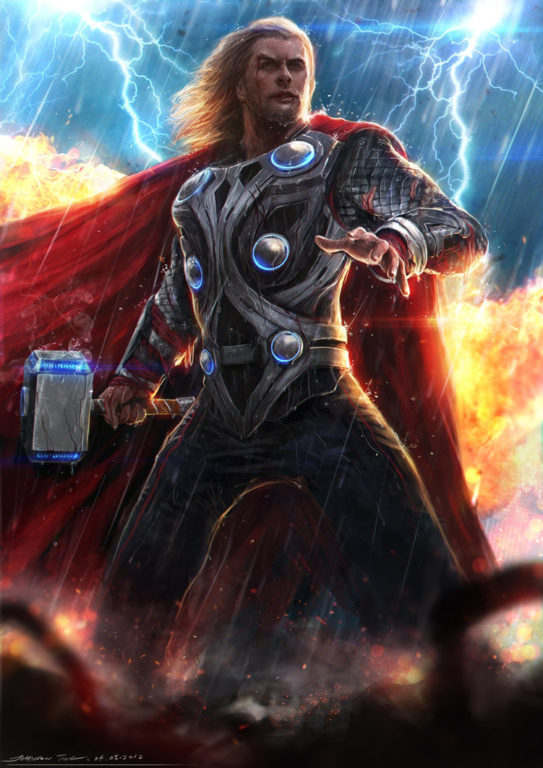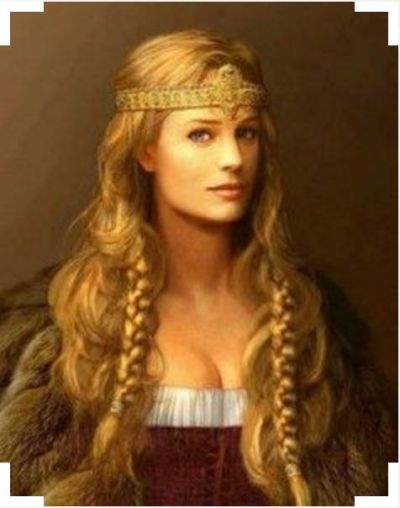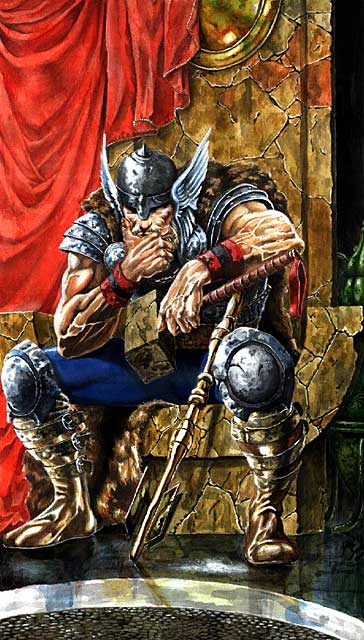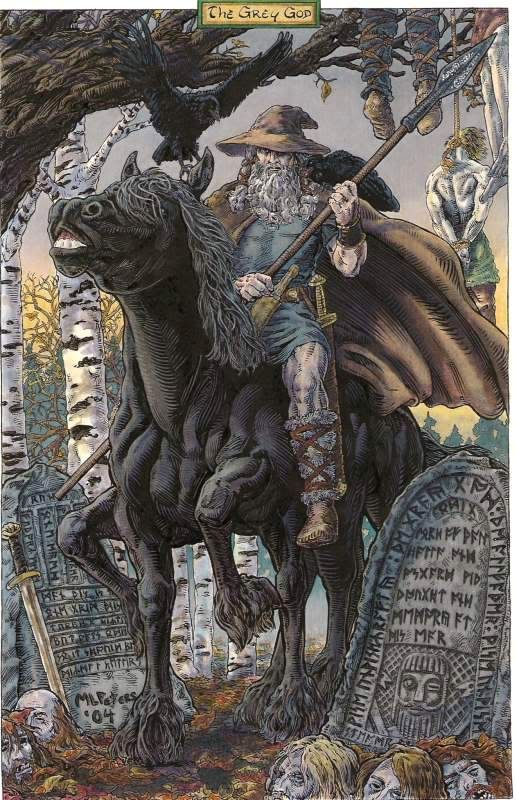
Many people are aware of the fact that the Anglo Saxons were Christians. However, that is not the actual truth. The Anglo Saxons were converted to Christians by a pope from Rome.
Originally, the Anglo Saxons gods and goddesses’ facts says that the Anglo Saxons were Pagans. The gods and the goddesses were Pagan Gods and Pagan Goddesses. This was the time of the Early Medieval of England which marks the timeline between the 5th century and the 8th century AD, before the conversion to the Christianity.
But, what do we understand by the word Pagan? ‘Pagan’ was a term of the Latin origin, which was used by the Christians to describe the Anglo Saxons of England who were not Christians.
Let us now go through the different gods that were followed by the Anglo Saxons to show the path to the gods Anglo Saxons paganism for beginners.
Anglo Saxon gods and goddesses’ names
Contents
Following mentioned is all the Anglo Saxon gods and goddesses list that were believed and followed by the Anglo Saxons:
- Eostre: Goddess of Birth
- Hel: Goddess of Death
- Saxnot: God of the Family
- Tiw: God of War
- Wayland: God of Metal working
- Balder: God of Immortality
- Frigg: Goddess of Love
- Loki: God of Cunning
- Thor: God of Thunder
- Wade: God of the Sea
- Woden: Chief God
Anglo Saxon gods’ days of the week
According to the Anglo Saxons, they named the days of the week after the name of the gods. Not only was the particular name of a day named after a god, but they also believed that the specific day belonged to that specific god. Let us now go through the different days named after the different Anglo Saxon gods and goddesses.

- Sunday: Sunday was named after the day of the Sun. The name ‘Sunday’ was derived from ‘Sun’s Day’.
- Monday: Monday was named after the day of the Moon. The name ‘Monday’ was derived from ‘Moon’s Day’.
- Tuesday: Tuesday was named after the Pagan God Tiw, that is, the God of War. The name ‘Tuesday’ was derived from ‘Tiw’s Day’.
- Wednesday: Wednesday was named after the Pagan God Woden, that is the Chief God amongst all the Gods and Goddesses. The name ‘Wednesday’ was derived from ‘Woden’s Day’.
- Thursday: Thursday was named after the Pagan God Thor, that is, the God of Thunder. The name ‘Thursday’ was derived from ‘Thor’s Day’.
- Friday: Friday was named after the Pagan Goddess Frigg, that is, the Goddess of Love and wife to Woden. The name ‘Friday’ is derived from ‘Frigg’s Day’.
- Saturday: Saturday was named after Saturn, who was a Roman God. The name ‘Saturday’ is derived from ‘Saturn’s Day’.
Let us now go through a brief introduction about the different Anglo Saxons pagan gods.
Anglo Saxon God Eostre
Eostre was the Pagan Goddess of Birth. She was also known by the name Ostara. Eostre relates to the festival what we now know as Easter. “The Reckoning of Time”, a work by Bede in the 8th century reflects the attestation of Eostre. There Bede mentions that during Ēosturmōnaþ, that is, a month equivalent to April, the Anglo Saxons had arranged a feast in the honour of Eostre, a tradition which was dead by then after the conversion to Christianity.
Anglo Saxon God Frigg

Frigg was the Pagan Goddess of Love and was the wife to the chief god amongst all the gods of the Anglo Saxons, Woden. According to the Norse mythology, Frigg is a goddess who had her association with wisdom and foresight and used to dwell at the wetland halls of the Fensalir. After the conversion to Christianity, Frigg had her presence at the Scandinavian Folklore.
Anglo Saxon God Hel
As per the name suggests itself, Hel was the Pagan Goddess of Death. The reason why she was considered as the goddess of death is that the Anglo Saxons believed that she used to receive a portion of all the dead. The presence of Hel was attested in the 13th century in two different literatures, that is, the Poetic Edda and the Prose Edda.
Anglo Saxon God Loki
Loki was the Pagan God of Cunning and the father of Goddess of Death, Hel. The reason why he was named the god of cunning is due to his multifaced behaviour towards the other gods. At times Loki used to assist all the other gods in a good way and at other times he would show a malicious behaviour towards the same other gods.
Anglo Saxon God of Thunder

The Anglo Saxons god of thunder was Thor who was also known by another name, Thunor was the son to the chief gods amongst all other gods of the Anglo Saxons, Woden and the goddess of Love, Frigg. Thor’s equipment was his worthy hammer named, “Mjölnir” through which he could summon thunder. Though he was himself not the god of war, but he was a strong warrior who was great at the wars.
Anglo Saxon God of War
Tiw was the Pagan god of war. He was the greatest warrior god amongst all the other gods who was the best at fighting the battles. Tiw was a handicapped god as he had only one hand but yet was the most skilled and decorated warrior amongst the other Pagan gods when it came to fighting the battles.
Anglo Saxon God Wade
Wade was the Pagan god of Sea, also known as Folklore and father to the god of the metal working, Wayland. Though the first mention of Wade was in a poem written in Old English “Widsith”, he was also mentioned in the Poetic Edda along with another god of Anglo Saxons, that is, the goddess of death, Hel.
Anglo Saxon God Woden

Woden was the chief god amongst all the other Pagan gods of the Anglo Saxons, husband to the goddess of Love, Frigg and father to the god of thunder, Thor. Woden was also known by another name, Odin. All the Anglo Saxons warriors used to worship by his name before every battle to gain his strength on the battlefield.
Bealdor Anglo Saxon god
Bealdor was the Pagan God of immortality, son of Woden and Frigg and brother of God of Thunder, Thor. He was also known by another name, Balder.

